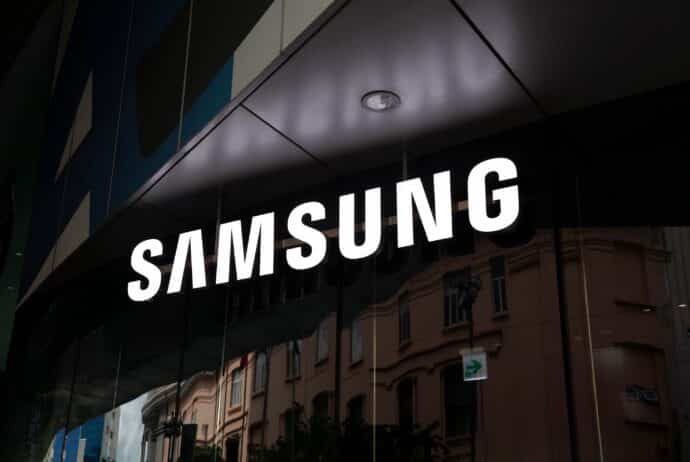Key Insights
- Samsung’s labor unrest with the National Samsung Electronics Union disrupts AI chip production.
- Samsung lags behind SK Hynix and Micron in the competitive HBM chip market.
- New leadership and strategic shifts struggle to boost employee morale and market performance.
Samsung Electronics is confronting a multifaceted crisis threatening its progress in the competitive semiconductor market, particularly in AI technology. The company’s recent financial optimism is overshadowed by labor disputes and production setbacks, raising concerns about its future growth.
An escalating labor dispute is a significant issue that is contributing to Samsung’s current challenges. Approximately 6,500 members of the National Samsung Electronics Union (NSEU) initiated a three-day strike last Monday, the largest organized labor action in the company’s history. The union, which has grown from 10,000 to over 30,000 members within a year, demands better pay and working conditions.
The labor unrest has intensified with the union announcing an indefinite strike targeting production lines, including those for high-bandwidth memory (HBM) chips. This action could disrupt Samsung’s efforts to catch up with rivals SK Hynix and Micron in the AI-driven HBM chip market. Despite Samsung’s denial of production disruptions, the union claims that line production is already affected and anticipates regret from the company over its lack of dialogue.

CypherMindHQ.com Artificial Intelligence Crypto Trading System - Surpass the competition with this cutting-edge AI system! Utilize the prowess of innovative algorithms and amplify your crypto trading strategies with CypherMindHQ. Learn more today!
Competitive Pressures in the AI Chip Market
Samsung’s struggle extends beyond labor issues to technological competition. The company lags behind SK Hynix and US-based Micron in developing HBM chips, essential components for AI systems. Samsung has not yet met the qualifications to supply HBM chips to industry leader Nvidia, missing out on a lucrative market segment.
Myron Xie, an analyst at SemiAnalysis, expressed concern over Samsung’s position, stating that the company is losing out on a significant opportunity. HBM chips represent a highly profitable sector, and Samsung’s delay in this area is worrying for a company historically known as a leading memory manufacturer.
Additionally, Samsung’s attempts to challenge Taiwan Semiconductor Manufacturing Co. (TSMC) in the global foundry business have been less successful. Customers prioritize technology quality and stable supply, where Samsung has struggled to meet expectations.
Internal Struggles and Leadership Changes
Internally, Samsung is facing dissatisfaction among its workforce. An anonymous Samsung chip engineer revealed a gloomy atmosphere within the company due to lagging behind SK Hynix in HBM technology and failing to compete with TSMC in foundry services. Employees are disheartened by what they perceive as inadequate pay compared to their peers at SK Hynix, leading many to consider leaving the company.
In response to the crisis, Samsung chair Lee Jae-yong appointed Jun Young-hyun as the new head of Samsung Electronics’ chip division in May, aiming to revitalize the company internally and externally. However, employees report seeing little change following this leadership shift, with low morale and a sense of directionlessness pervading the workforce.
Broader Market Pressures and Future Prospects
Samsung’s difficulties are compounded by intense competition in other sectors. The company unveiled new foldable smartphones with enhanced AI features, but it faces severe pressure from Apple and lower-cost Chinese rivals in the mobile market. Chinese competitors also threaten Samsung’s display and home appliance market share.
A researcher in Samsung’s smartphone business highlighted the low morale among workers, who were discouraged by smaller financial rewards and a perceived lack of direction from management. Similarly, a home appliance salesperson noted a crisis due to declining growth, a new experience for many employees accustomed to continuous sales increases.
Despite these challenges, some analysts see the potential for Samsung to recover. CW Chung from Nomura suggests that Samsung’s creation of a cross-division team dedicated to HBM development could help close the technology gap with SK Hynix as the industry progresses to future generations of HBM chips. Chung also notes that while poor strategy decisions have lasting effects, the broader memory market upcycle could sustain Samsung’s profitability.

CypherMindHQ.com Artificial Intelligence Crypto Trading System - Outpace the competition with this high-end AI system! Leverage the capabilities of progressive algorithms and enhance your crypto trading performance with CypherMindHQ. Learn more today!
Samsung maintains its comprehensive capabilities in foundry, memory chips, and advanced packaging techniques, positioning it well to compete against alliances like SK Hynix and TSMC. The company emphasizes its commitment to technological advancement and substantial investment as core elements of its strategy.
However, industry experts like Myron Xie from SemiAnalysis caution that Samsung’s current struggles are rooted in deeper leadership and corporate culture issues. Xie suggests that a cultural reset, while potentially long and painful, may ultimately benefit the company in addressing its internal and external challenges.
Editorial credit: Sybillla / Shutterstock.com



